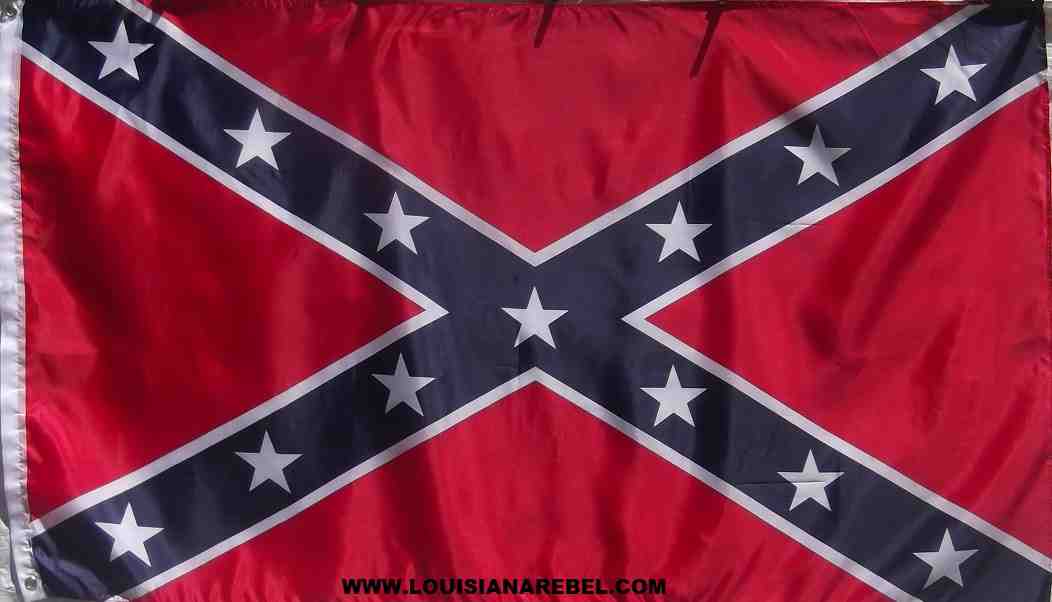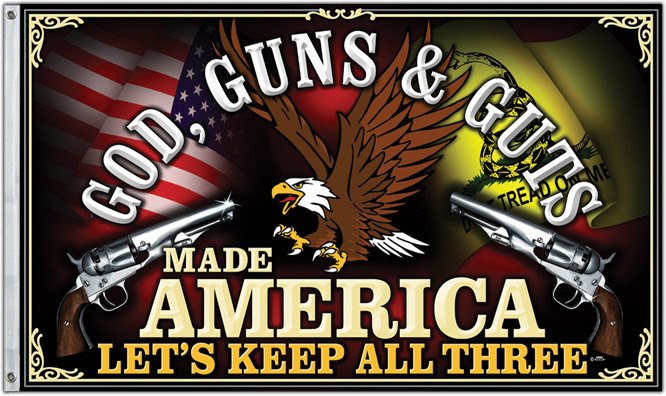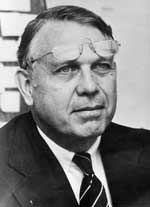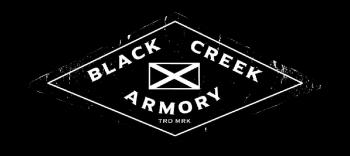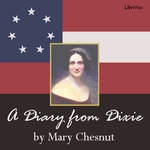This article is a review of Dr. Charles L. C. Minor's book, "The Real Lincoln."
Who is The Real Lincoln?
It is increasingly difficult to find balanced narratives on the Southern War of Independence or any person, place, or thing concerning it. Books and articles abound extolling the virtue of Abraham Lincoln and his “Glorious Union”—all from a typically Yankee point of view: “North good—South bad.” Presented here is evidence that questions the dogmatic histories that clog college libraries—like so much cholesterol in the veins of the student body—and make the case for historical revisionism in every area of the subject we call “History,” beginning with the War of Northern Aggression.
Thankfully, if one searches diligently he may find historical Lipitor in Confederate historians, statesmen, and soldiers, such as Jefferson Davis, Alexander H. Stephens, Robert E. Lee, and Charles L.C. Minor. Dr. Minor is the author of the book, The Real Lincoln.
“‘History is bunk’ says Henry Ford. Had he qualified this statement with ‘as it is written,’ his assertion would have been more readily accepted.” In the first paragraph of The Real Lincoln, the publishers have set its tone. Not for the first time has such an unworthy man as Abraham Lincoln been deified and set on a pedestal after his death in order to suit the diabolical purpose of the men who wield his memory. One notices this phenomenon recently in the “Good Reverend Doctor Martin Luther King Junior,” who has been set forth as a beacon of light in an age of darkness—a godlike Christian Saint of the highest moral character. An in-depth study proves that Michael King was a Marxist drug addict who purchased prostitutes with church money and plagiarized great portions of his doctoral thesis. Michael King has become a fool’s martyr, or rather, a King of fools presiding over a realm of blissfully ignorant hero worshippers.
The Real Lincoln may be described as:
“A compendium of historical quotes by Abraham Lincoln’s Northern contemporaries that question his moral integrity, with interjections by the author.”
In what are the book’s most pertinent topics, Dr. Minor proves that Abraham Lincoln was:
1. Was racist,
2. Was a religious hypocrite,
3. Delivered the Emancipation Proclamation with the express intent of fomenting servile insurrection,
4. Supported rebellion against the Union, prior to the War between the States,
5. Was a despot, and
6. Was a coward
The Racist
The Union General, Donn Piatt, reveals Lincoln’s racism in his book, Reminiscences of Lincoln:
“Expressing no sympathy for the slave, he laughed at the Abolitionists as a disturbing element easily controlled, without showing any dislike to the slave-holders….We were not at a loss to get at the fact and the reason for it, in the man before us. Descended from the poor-whites of a slave State, through many generations, he inherited the contempt, if not the hatred, held by that class for the negroes. A self-made man,…his strong nature was built on what he inherited, and he could no more feel a sympathy for that wretched race than he could for the horse he worked or the hog he killed.” (Minor 11).
This testimony is from the mouth of one of Lincoln’s fellow racists. If being racist questions General Piatt’s credibility then we will hear more from Mr. Lincoln Himself. Lincoln declares in a speech of September 18, 1858, in Charleston, Illinois:
“I will say then that I am not, nor ever have been in favor of bringing about in any way the social and political equality of the white and black races, [applause] — that I am not nor ever have been in favor of making voters or jurors of negroes, nor of qualifying them to hold office, nor to intermarry with white people; and I will say in addition to this that there is a physical difference between the white and black races which I believe will for ever forbid the two races living together on terms of social and political equality. And inasmuch as they cannot so live, while they do remain together there must be the position of superior and inferior, and I as much as any other man am in favor of having the superior position assigned to the white race….I have never seen to my knowledge a man, woman or child who was in favor of producing a perfect equality, social and political, between negroes and white men.”(Lincoln Volume III 145-146).
Mr. Lincoln repeats and reconfirms this position, even expounding upon it in a debate in Quincy, Adams County, October 13, 1858, saying that these were long held beliefs (Lincoln, Volume III 245-257). Much to the chagrin of today’s African-American and Judeo-Christian leaders, Lincoln’s racism—like Hitler’s Christianity—was unfeigned.
The Hypocrite
“The crowning glory of Abraham Lincoln was the grandeur of his Christian character.” (Rev. William Bishop, D.D.). So is the introductory sentence to the book Abraham Lincoln: the Christian by William J. Johnson. The Emancipation Proclamation contains an invocation of “Almighty God.” One has only to peruse The Collected works of Abraham Lincoln to find dozens of speeches that contain some sanctimonious reference to “God” and a “Divine Being.”
While in the public eye, President Lincoln was quite the upright and pious Christian man; behind closed doors and in the company of his few friends, Lincoln voiced condemnations of Christianity and the person of Christ Jesus that would have made Charles Darwin blush. His close friend and bodyguard Ward H. Lamon reveals that “when he went to church at all, he went to mock, and came away to mimic.” (Minor 28). William Herndon, Lincolns two decade long “friend and law partner” (232) tells us that he “would come into the clerk’s office where I and some young men were writing,…and would bring a Bible with him; would read a chapter and argue against it.”(28-29).
Incredibly, Lamon and Herndon both attest to the fact that Lincoln wrote “an argument against Christianity, striving to prove that the Bible was not inspired, and therefore not God’s revelation, and that Jesus Christ was not the Son of God.” (28). Being careful not to offend Victorian sensibilities—and sensitive to Lincoln’s political career—a friend of his, Samuel Hill, burned the book before it could be published.
Although many 19th century historians labeled as “atheist” anyone who did not profess belief in Jesus Christ, it would be incorrect to call Lincoln an atheist as we understand the term in the 21st century. Lincoln never denied the existence of an abstract “god,” but questioned the God of the Bible and His role in men’s lives. While these may seem to be the actions of a dedicated deist, Lincoln seemed not to be on fire for any “religion.” Lincoln was most likely either agnostic or a deist who simply removed deism’s romantic intellectual factor.
“Massa Lincoln”
In 1808, the slave trade was abolished in America. Few students are aware that this law was upheld by the Confederate States of America and written into its Constitution. The institution of slavery was already in its death throes by the 1860’s, even in the Confederacy. The American enslavement of African peoples could have hardly survived into the 20th century. Practically speaking, the American Industrial Revolution and trade union movements made the human slave technologically obsolete and his condition intolerable. Had Lincoln left slavery to die of natural causes, he would have avoided a fratricidal conflict that took the lives of some 620,000 Americans.
The fact that the Union did not actually free its slaves until 1865 makes us question Lincoln’s true motive behind the Emancipation Proclamation of 1863. The inconsistency is apparent when viewed objectively. If concern for an enslaved people was the issue at hand then logic dictates that Lincoln would have first freed the slaves in the United States and led the Confederate States by object lesson.
The Emancipation Proclamation, “Contained paragraphs which might fairly be interpreted, and were so interpreted by the Confederates, as inciting the negroes to rise against their masters, thus exposing to all the horrors of a servile insurrection, with all its accompaniment of murder and outrage, the farms and plantations where the women and children of the South lived lonely and unprotected.” (193).
By January 1, 1863, Lincoln was frantic—the Confederacy had “donewhippedthepants off themYankees” in every major military engagement up to this time. Small wonder that “President Lincoln calls to his aid the execrable expedient of a servile insurrection.” (199). The Emancipation Proclamation was Lincoln’s answer to a superior Confederate military; an attempt by Lincoln to destroy the very fabric of Southern Society through a bloody slave revolt, thereby ending the war in favor of the Union. Dr. Minor criticizes this unconscionable practice:
To arm slaves against their masters, with the horrors that may be expected to result, has been accounted barbarity. The French have been bitterly denounced by American historians for arming the Indians against the early English settlers in America. (195).
It is interesting to note that while viewing a timeline of the War Between the States, one notices that the First Conscription Act was passed shortly after the Emancipation Proclamation was given. By this time, the war was wildly unpopular in the Northern States and Union Generals were in dire need of troops. Evidence abounds that State Agents pressed “freed” black slaves into Union military service. Union General William T. Sherman tells us that, “They had been told that they must become soldiers; that ‘Massa Lincoln’ wanted them.” (200).
Dr. Minor records an order given by Lincoln’s “Abolitionist General,” David Hunter:
All able bodied colored men between the ages of eighteen and fifty within the military lines of the Department of the South, who have had an opportunity to enlist voluntarily and refused to do so, shall be drafted into military service of the United States… (202)
Dr. Minor reasonably concludes that, “This order alone may account for the whole 180,000 colored volunteers.” (202).
The result of the Emancipation Proclamation: Union military overlords that generally sent colored troops into slaughter replaced the plantation master who had a vested interest in the safety and well-being of his servants, who were considered family members more often than not. This sentiment was immortalized in the words of United States Senator John A. Logan, Union Major General and Commander-in-Chief of the Grand Army of the Republic:
“I had rather six niggers…be killed than of [my] brave boys.” (Klinkner 59)
The Traitor
Nearly every grammar school textbook tells us of the Raid at Harper’s Ferry in Oct. 1859, in which a rebellion killed six lawful townsfolk and two of Robert E. Lee’s United States Marines. What we do not find recorded, even in college textbooks, is that Abraham Lincoln supported the lunatic John Brown’s insurrection against the Union by sending him $100. Minor includes proof of this in appendix B (249). Perhaps Abraham Lincoln did not believe that one should merely “change the Constitution through legal channels,” but that in order to effect social and political change, one should form hare-brained rebellions and kill United States servicemen. Today we view dissident Americans sending money to Al-Qaeda as treason and an act of terrorism. Mr. Lincoln did the historical equivalent—lucky for him that his Republican Party did not have a time machine and a nomination for G. W. Bush in 1856, or Lincoln would still be waiting for trial somewhere in the Caribbean.
Lincoln also supported, financed, and worked with the radical “Free Soil Party,” which “denounced the Constitution as a ‘covenant with hell, and a league with death.’” (248).
The Tyrant
Abraham Lincoln is lauded as the savior of Democracy in the United States of America. One would expect such a champion of liberty to uphold the principles of freedom fought for in the American Revolution.
“The privilege of the writ of habeas corpus shall not be suspended, unless when in cases of rebellion or invasion the public safety may require it.” (US Constitution, Article 1, Section 9, paragraph 2). One can grasp why Lincoln was compelled to declare martial law and suspend the writ of habeas corpus in Confederate states—they openly defied the authority of the Union—but incomprehensibly, Lincoln suspended habeas corpus in peaceable Union states as well.
The noted abolitionist, Wendell Phillips, lectured regarding Lincoln’s despotism:
“…Habeas corpus, free meetings like this, and a free press, are the three elements which distinguish liberty from despotism. All that Saxon blood has gained in the battles and toils of two hundred years are these three things. But today, Mr. Chairman, every one of them—habeas corpus, the right of free meeting, and a free press—is annihilated in every square mile of the Republic. We live today, every one of us, under martial law. The Secretary of State puts into his bastile, with a warrant as irresponsible as that of Louis XIV, any man whom he pleases. And you know that neither press nor lips may venture to arraign the Government without being silenced. At this very moment one thousand men at least are ‘bastiled’ by an authority as despotic as that of Louis.” (Minor 120-121).
The historian James Ford Rhodes in his History of the United States echoes Phillips’ sentiments:
“He [Lincoln] stands responsible for the casting into prison of citizens of the United States to be counted by thousands (230) on orders as arbitrary as the Lettres de Cachet of Louis XIV. (122).
Rhodes, Lincoln’s “ardent eulogizer” even goes so far as to call him a “tyrant,” and says well that he had no business interfering with the “freedom of the press in States which were not in the theatre of the war…” (123). Benjamin R. Curtis (Supreme Court Justice) and William A. Dunning (President of Columbia University) both spoke out against Lincoln’s despotism (124-125). The Harvard Law Professor, Joel Parker, asks, “Do you not perceive that the President is not only an absolute monarch, but that his is an absolutely uncontrollable government, a perfect military despotism?”(123).
The Yankee’s 16th President even had Northern newspapers shut down and their owners/editors cast into prison if they did not toe the Lincoln line. “One action was aimed at then Ex-President Pierce, ‘who believed…the South to be the aggrieved party.’”(129). Political prisoners were often deprived of basic rights guaranteed to prisoners by the Constitution:
“The person ‘suspected’ of disloyalty was often seized at night, borne off to the nearest fort, deprived of his valuables,…If he wished to send for friends or an attorney, he was informed that the rules forbade visitors, that attorneys were entirely excluded, and that the prisoner who sought their aid would greatly prejudice his case.” (128)
Prisoners were, “carried to Fort Warren or other remote places….In most cases from one to three months elapsed before definite action was taken by the department….If the arrest had been made without due cause, no oaths or conditions of release were required.” (128).
Stalin evidently took a page from the Lincoln-Seward playbook:
“Secretary Seward wrote to Keys, U.S. Marshal, ‘you will therefore please inform all the prisoners at Fort Warren…that if the fact comes to the knowledge of this department that any prisoner has agreed to pay to any attorney a sum of money, or to give him anything of value as a consideration for interceding for the release of such prisoner, that fact will be held as an additional reason for continuing the confinement of such persons.’ War of the Rebellion; Official Records of the Union and Confederate Armies, Series II., Vol I., p. 614.” (128).
Those who are familiar with Alexander Solzhenitsyn’s The Gulag Archipelago are visited here by a strong sense of déjà vu.
Near the end of the war, Lincoln had become so mad with power that leaders from his own Republican Party opposed a second Presidential term. On May 31, 1864, the radical abolitionist Republicans Frederick Douglass, Horace Greeley, Wendell Phillips, and John Charles Frémont, gathered in Cleveland Ohio “for the sole purpose of defeating Mr. Lincoln’s second election,” because they felt that “public liberty was in danger.” (117).
The Coward
Dr. Minor tells us that, “Among the heroic traits claimed for Lincoln is personal courage. This claim is hard to reconcile with his carefully concealed midnight ride into Washington a day or two before his inauguration.” (15-16). Lincoln’s detractors are fond of calling him a coward because of this. I believe that a more accurate description of Lincoln’s fear of assassination would be astuteness. While General Thomas Jackson “stood like a stone wall” in the midst of Northern cannonade, we must remember that Lincoln was no Calvinist; in his worldly eyes, preparatory measures would ensure his safety, allowing him to live longer. However one attempts to justify Lincoln’s actions on the night in question, he personally never lived it down: “…The way we skulked into this city in the first place has been a source of shame and regret to me, for it did look so cowardly.” (17). Horace Greeley “likened him to ‘a hunted fugitive.’” (17).
The chapter concerned with Lincolns courage—or lack thereof— is curiously silent regarding his military service in the Black Hawk War of 1832. The young Lincoln reenlisted in the Illinois militia as a private after formerly serving with an officer’s distinction. Few men of abject cowardice volunteer to fight during a frontier war. Indian wars were especially barbaric and horrifying, and few men (Christian or not) would step off their horse to march with the infantry and willingly subject themselves to the potential brutality of a heathen army.
Nonetheless, Lincoln was a fearful man by the time he assumed the Presidency of the United States, and remained rightly so until his death at the hands of a Mad Booth of Maryland in 1865.
An earnest academic venture into revisionist history proves that Abraham Lincoln’s administration was the most corrupt and tyrannical Presidency that the United States has ever had the displeasure of suffering. Many patriotic Americans see Lincoln’s despotism as worse treason than any so-called rebellion of the Southern States. Such villainous and “despotic treatment of American citizens” (129) is criminal in the extreme and inexcusable for a man who took an oath to uphold the Constitution of the United States. Tyrannical rulers like Abraham Lincoln are rogue and bandit; they are not bound by what John Locke called “the ties of the commonlaw of reason…and so may be treated as beasts of prey.” (Locke Chapter 3, Paragraph 16) Read by a subjugated people: a tyrant may be slain at the hands of those that have been misruled and enslaved by him. Some modern philosophers even believe that tyrants ought to be hanged by their own guts at Madison Square Garden—live in HD—so it can be Tivoed and watched every Fourth of July.
“Honest Abe” would have certainly marveled at the one-sided presentation of his historical persona. In this, many agree with Lincoln’s friend that he should be “remembered as he was, and not looked at through any distorting medium like the aureole and crowning flame of martyrdom…” (Minor 6) Let not future generations view us collectively as some dark age Romish Papist who tells his flock that the world is flat, as he reads over the verse in the Book of Isaiah that says God “sitteth upon the circle of the earth.”(King James Version, Is.40:22)
Prove all things is an ancient maxim that remains relevant in the 21st century and can be embraced not only by ecclesiastical writers, but by the secular historians as well. Men and women of honor desire truth; honorable historians demand it and quest for it relentlessly. When truth is revealed to the historian, he uses it to intrigue the destruction of falsehood. Dr. Charles L. C. Minor’s book is a Molotov cocktail thrown into the crumbling façade of the dark institution of historical deceit—may the flames grow ever higher to illuminate a brighter age for humanity.
Bibliography
Abernathy, Ralph. And the Walls Came Tumbling Down. 1989. Print.
Efflandt, Lloyd H. Lincoln and the Black Hawk War. 1992.Print.
Garrow, David J. The FBI and Martin Luther King Jr. 1981. Print.
Johnson, William J. Abraham Lincoln: the Christian. 1913. Print.
Locke, John. Second Treatise of Government. Print.
Kimmel, Stanley. The Mad Booths of Maryland. 1940. Print.
KJV. The Holy Bible, Authorized King James Version. 1611. Print.
Klinkner, Phillip A. The Unsteady March: The Rise and Decline of Racial Equality in America. Print.
Lincoln, Abraham. The Collected Works of Abraham Lincoln. Volumes I-VIII. Print.
Miller, Edward J. Lincoln's Abolitionist General: The Biography of David Hunter. 1997. Print.
Minor, Charles L.C. The Real Lincoln. (1904). Fourth Edition. Sprinkle Publications. 1992. Print.
Pappas, Theodore. Plagiarism and the Culture War. 1998.Print.
Stephens, Alexander H. History of the United States. Print.
---The War Between the States. Print.
“The Constitution of the Confederate States of America.” Documents of American History. 7th ed. 1963. Print.









